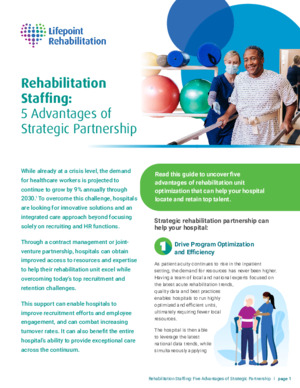Narconon Africa Fundamentals Explained
Narconon Africa Fundamentals Explained
Blog Article
Indicators on Narconon Africa You Need To Know
Table of ContentsFascination About Narconon AfricaExcitement About Narconon AfricaThe Only Guide for Narconon AfricaSome Ideas on Narconon Africa You Should KnowAn Unbiased View of Narconon AfricaThe 5-Second Trick For Narconon AfricaNot known Details About Narconon Africa
In a collection of documents with Manudeep Bhuller and Katrine V. Lken, we get rid of these information obstacles and the nonrandomness of jail time, using brand-new understandings into exactly how incarceration affects recidivism, employment, youngsters, and criminal networks - Drug rehabilitation. Figure 1 Our job studies the results of incarceration in Norway, a setting with 2 crucial advantagesWe can further connect this info to various other member of the family, consisting of youngsters and siblings. In addition, we know on co-offending that permits us to map out criminal networks for observed criminal offenses. Second, we can leverage the random task of criminal cases to judges that differ in their propensities to send accuseds to jail.
Some judges send out offenders to jail at a high rate, while others are much more tolerant. We measure a judge's stringency as the average incarceration rate for all various other instances a judge deals with, after managing for court and year set results, which is the degree of random task. This quasi-random assignment of court stringency can be utilized as an instrument for imprisonment, as it highly anticipates the judge's choice in the current case, but is uncorrelated with other situation characteristics both by style and empirically.
What Does Narconon Africa Do?
Features of detainees, including demographics and crime categories, are generally similar in Norway and various other nations, consisting of the USA, with the exceptions that the United States homicide price is a lot higher, and race plays a larger duty there also. What attracts attention as various, particularly compared with the USA, is the prison system.
Figure 2In Norway, the ordinary time invested in prison is a little over 6 months, which resembles most other Western European nations. This contrasts with typical US jail time of practically 3 years, which is in large component the reason the USA is an outlier in its incarceration price compared to the remainder of the world [Number 1]
The 8-Second Trick For Narconon Africa
This provides a lot more splitting up between minor and hard offenders than exists in the United States. There is no congestion in Norwegian jails and better personal security, with each detainee being appointed to their very own cell and a greater inmate-to-staff ratio than in the USA (https://narcononafrica.godaddysites.com/f/narconon-celebrates-58-years-of-championing-drug-free-living). Jails in Norway likewise use well-funded education, medicine therapy, mental health, and work training programs
Our research study on the effects of incarceration on the culprit, using the arbitrary task of judges as a tool, returns three vital searchings for. Jail time dissuades further criminal actions. We discover that imprisonment decreases the possibility that a person will reoffend within 5 years by 27 portion factors and decreases the matching variety of criminal fees per person by 10 fees.
The smart Trick of Narconon Africa That Nobody is Discussing
We locate large declines in reoffending probabilities and collective charged criminal offenses also after defendants are released from jail. Our 2nd outcome is that prejudice due to selection on unobservable private features, if ignored, causes the wrong conclusion that time spent behind bars is criminogenic. If we just contrast criminal accuseds imprisoned versus those not sent to prison, we discover favorable organizations between imprisonment and succeeding criminal offense.
This stands in comparison to our analysis based upon the random project of courts, which discovers an opposite-signed result. Third, the reduction in criminal activity is driven by individuals that were not working before imprisonment. Among these people, imprisonment enhances involvement in programs directed at improving employability and lowering regression, and this ultimately elevates employment and incomes while dissuading criminal habits.

Imprisonment triggers a 34 percent point boost in participation in work training programs for the previously nonemployed, and within 5 years their work rate rises by 40 percentage factors. At the exact same time, the possibility of reoffending within five years is reduced by 46 portion factors, and there is a decline of 22 in the ordinary number of criminal costs.
See This Report on Narconon Africa

A probable explanation for the difference is that Norway's jail system varies noticeably, both in terms of prison-term size and prison problems, from the United States jail system. While understanding the effects of imprisonment on read review the wrongdoer is an essential very first step, capturing spillover impacts is likewise important for assessing criminal justice policy and making reliable jail systems.
Some Ideas on Narconon Africa You Should Know

Regular the very least squares estimates expose that kids of incarcerated dads are 1 percent point more likely to be charged with a criminal activity, about a mean of 13 percent, and show no effect on college grades. Utilizing our court stringency instrument, we find no statistical proof that a daddy's incarceration influences a youngster's own crime or institution grades, yet we are unable to dismiss modest-sized impacts.
The smart Trick of Narconon Africa That Nobody is Talking About
We define criminal teams based upon network web links to prior criminal instances. Our analysis yields 3 main findings. First, when a criminal network participant is incarcerated, their peers' chance of being charged with a future criminal activity reduces by 51 portion points over the next four years. Similarly, having an older brother put behind bars decreases the chance his younger bro will be charged with a crime by 32 portion factors over the next 4 years.
Report this page